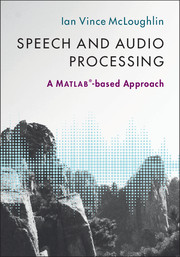11 - Conclusion
Published online by Cambridge University Press: 05 June 2016
Summary
You approach the doorway ahead of you. There is no visible lock or keyhole, no keypad, not even a fingerprint or retina scanner but as you come closer you hear a voice saying ‘Welcome back sir’. You respond with ‘Hello computer’, which prompts the door to unlock and swing open to admit you. You enter through the doorway and the door closes behind you as lights turn on in the hallway you have just entered.
As you remove and hang up your coat and hat, the same voice asks you ‘Can I prepare a cup of tea or coffee for you, sir?’, to which you reply ‘Yes, Earl Grey in the living room please’. A minute or two later, sitting in a comfortable chair with your feet up and sipping a perfect cup of tea, the voice continues, ‘While you were out, you received several messages, do you wish to review them now?’
Reluctantly you reply, ‘Just summarise the most important messages for me, computer’.
‘There was a message from your brother asking if you would like to play squash tomorrow night, as well as a reminder from your secretary about the meeting early tomorrow morning. In addition, you still haven't replied to Great Aunt Sophie regarding …’
‘Skip that message,’ you interject.
The voice continues, ‘Okay, then the final message is a reminder that your car is due for servicing next week. Would you like me to schedule an appointment for that?’
‘Yes computer, make it Monday morning, around 10am. Oh, and confirm the squash for tomorrow evening at 5.30pm. If his computer hasn't booked a court yet, make sure you book one right away.’
Later you are watching a re-run of Star Trek: The Next Generation on 3D television and have a sudden idea that might help you in your job as a speech technology researcher. Before you forget it, you speak out, ‘Computer, take a brief note’. The television programme pauses before a voice announces ‘ready’, and you then speak a few sentences terminating in ‘end note’. At a command of ‘resume’, you are again confronted with Captain Jean-Luc Picard and his crew.
Information
- Type
- Chapter
- Information
- Speech and Audio ProcessingA MATLAB-based Approach, pp. 366 - 369Publisher: Cambridge University PressPrint publication year: 2016
